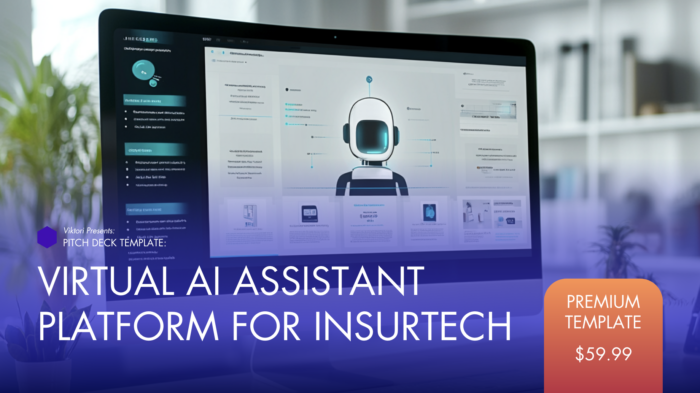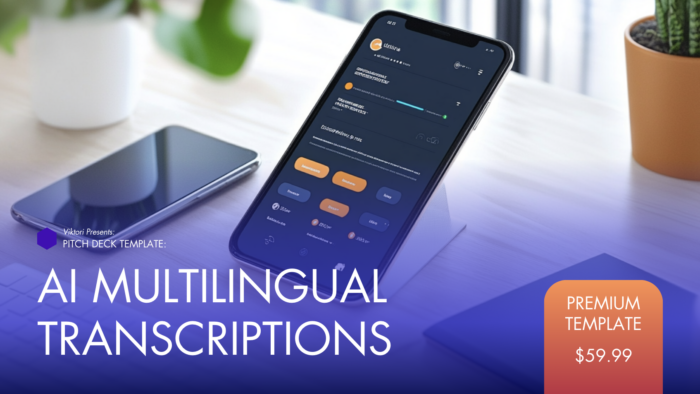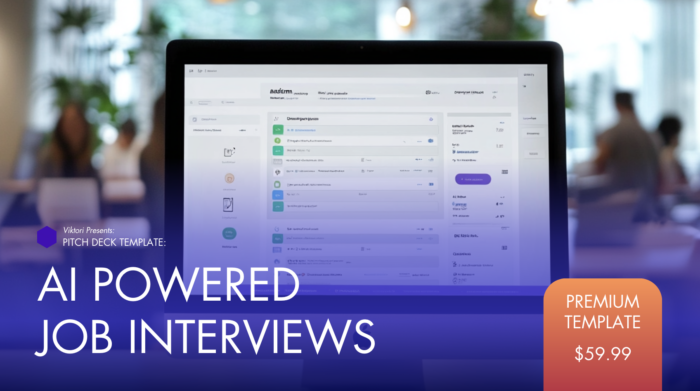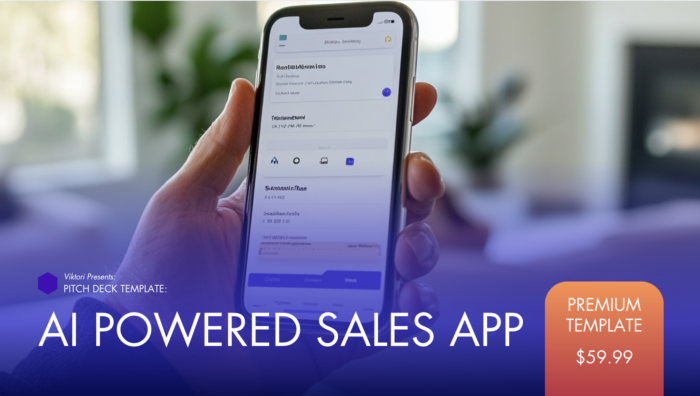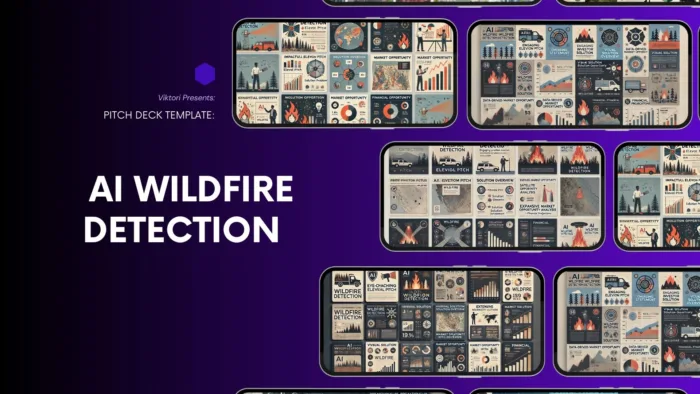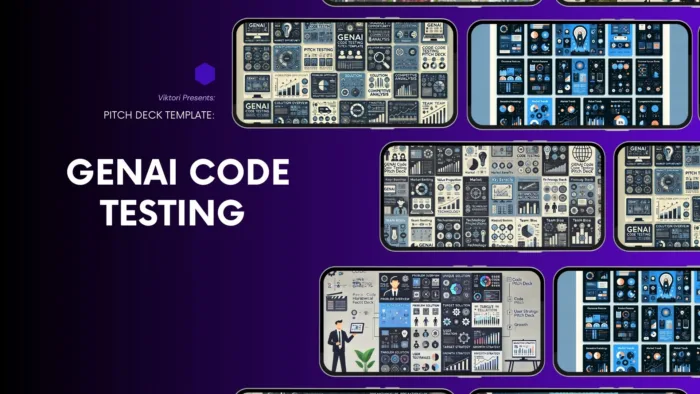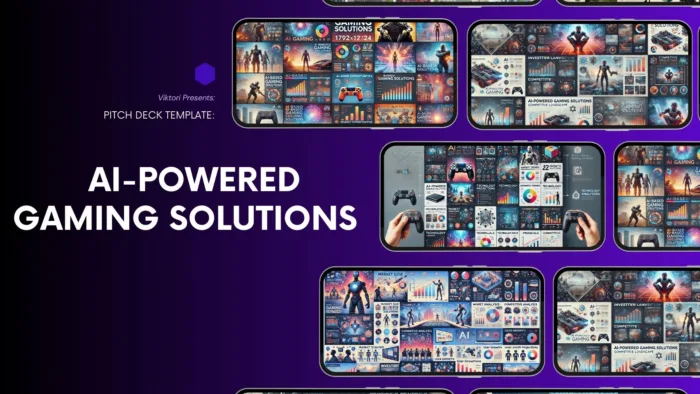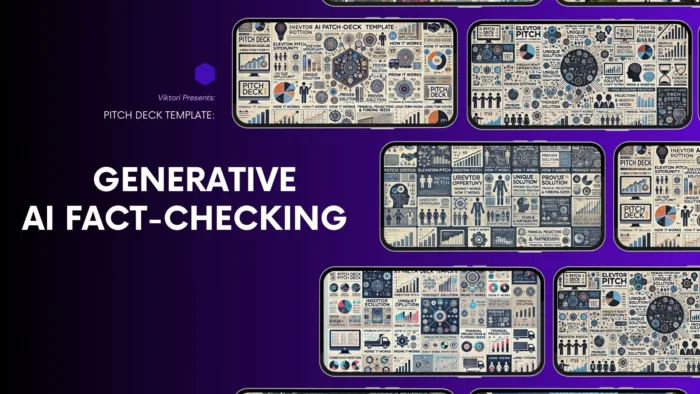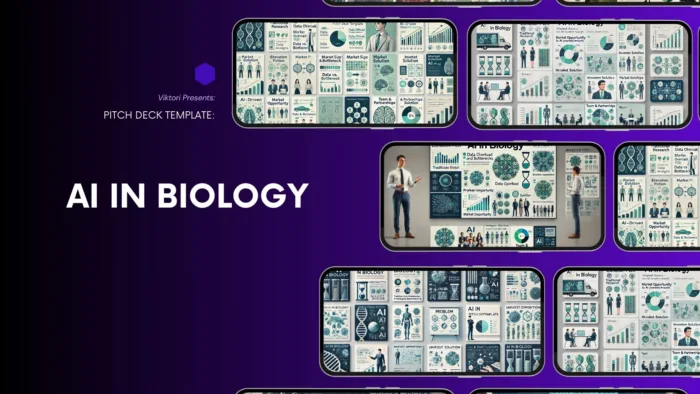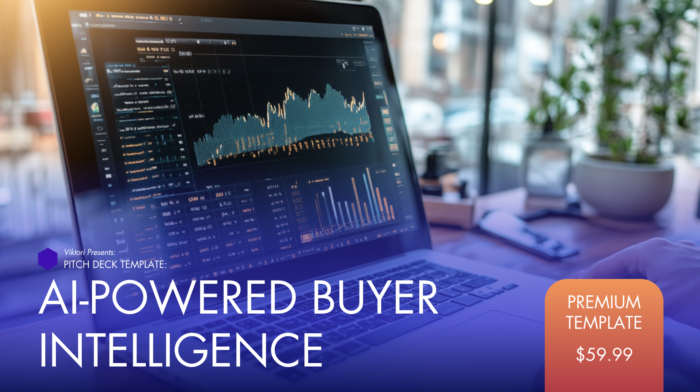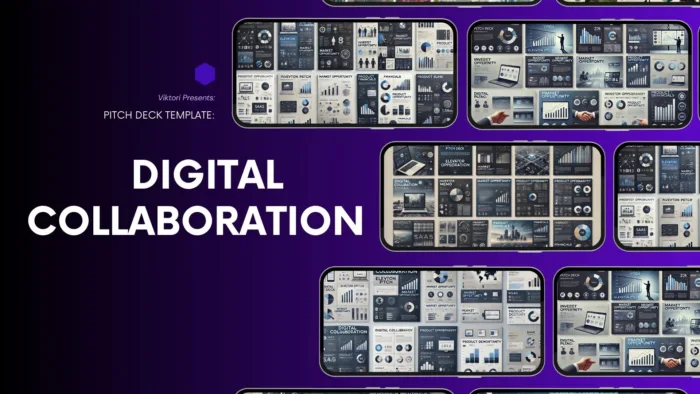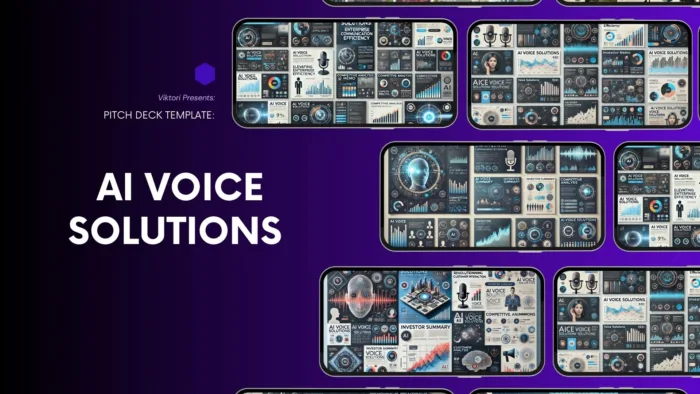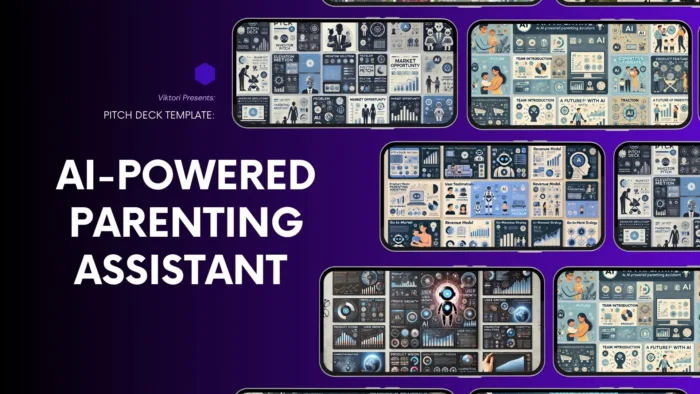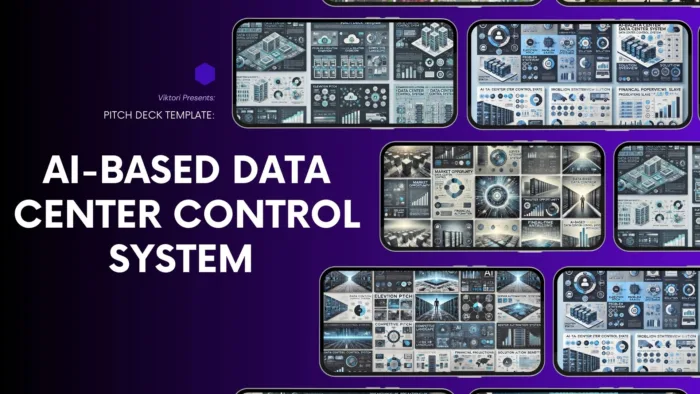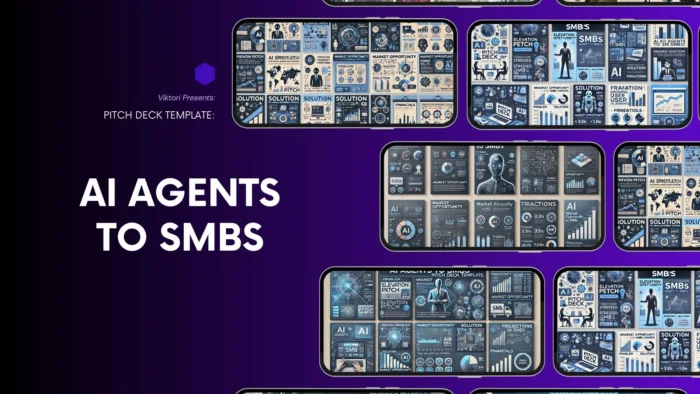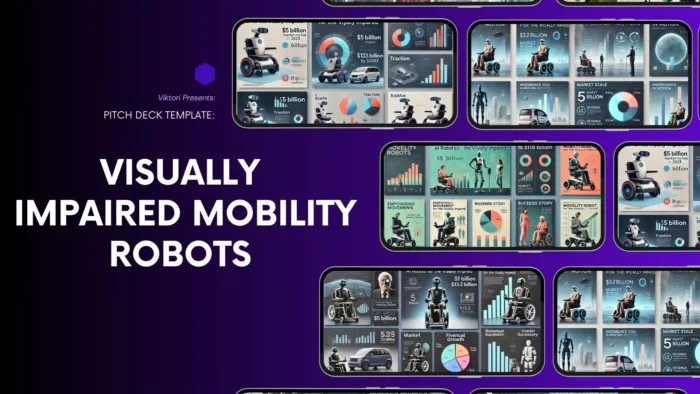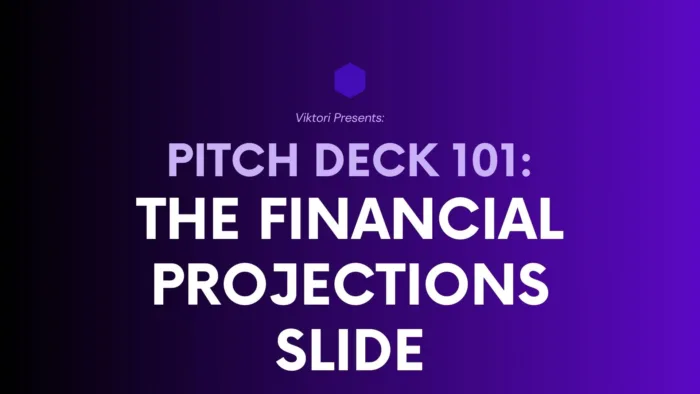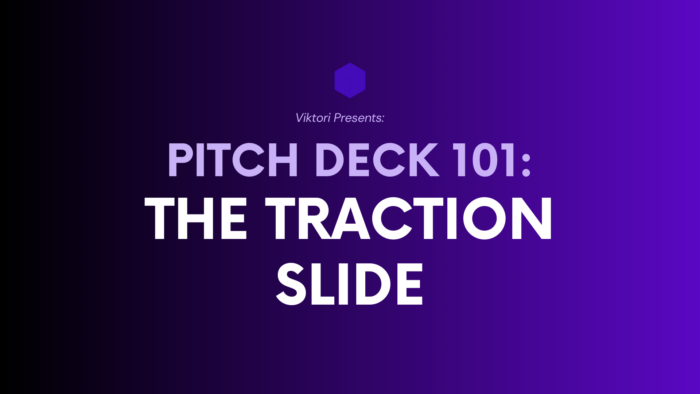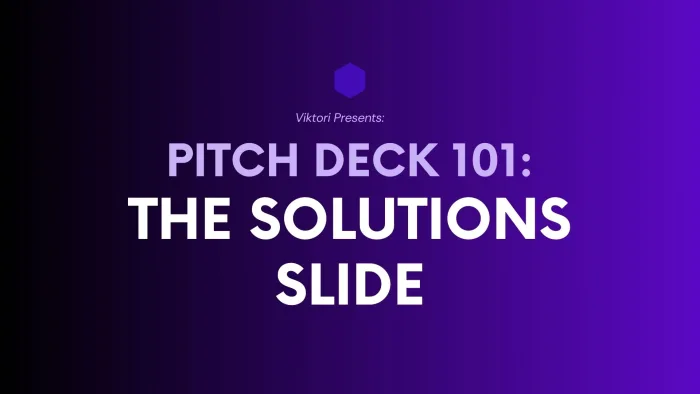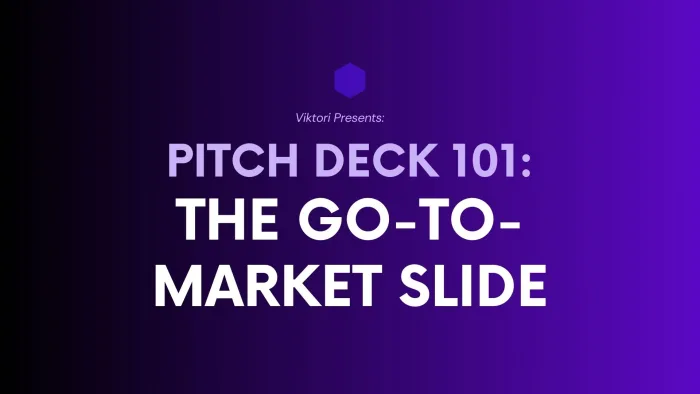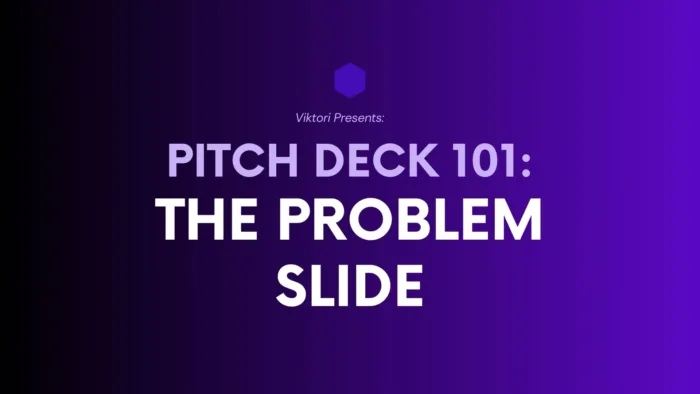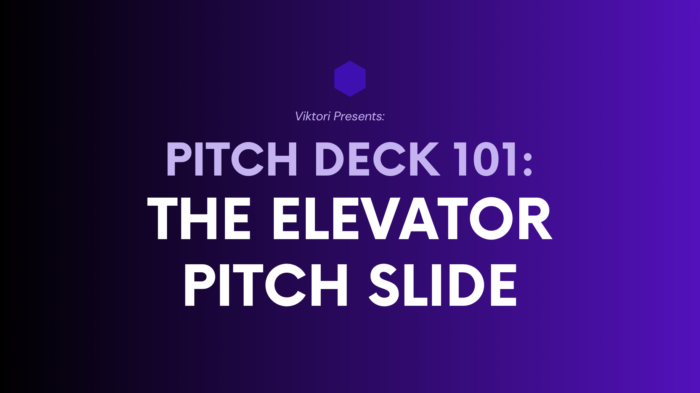So, you’re thinking AI and mental health – a match made in… well, maybe not heaven, but certainly in the lab.
Let’s face it: mental health care is long overdue for a glow-up, and if you’ve ever waited three months to see a therapist, you know exactly what I mean. Here’s the thing though: convincing people that an algorithm could be their new best friend when they’re feeling low?
That’s a tough sell. It’s like trying to tell someone that a robot dog is better than a real puppy.
But here’s the kicker – AI might actually be onto something here. You don’t need to “log your feelings” in a diary app or spend another hour explaining your life story to a therapist who’s double-checking your name. AI can offer instant insights, 24/7 support, and a whole new way to approach mental health care – without the wait times, the judgment, or the jargon.
I’m Viktor, a pitch deck expert and creative business strategist. Over the past 13 years, I’ve helped businesses secure millions of $ in funding thanks to my approach and I’m sharing it here in this pitch deck guide.
Get My 12 Slide Framework That Got $500mil in Funding For Clients.
What do you think of having 12 dead simple formulas, that will help you craft 12 slides, in about 1 hour? That’s what you’ll get, when you download my 12 slide framework. Save hours crafting your pitch deck copy with my tested approach that includes:
- Elevator pitch one sentence formula
- Problem/ solution slide one sentence formula
- Competitor slide one sentence formula
- 9 other formulas, tips, tricks and advice
The formulas worked for 40+ industries and 500+ companies. Including the one you’re looking at now.
Clicking the link won’t charge you anything.
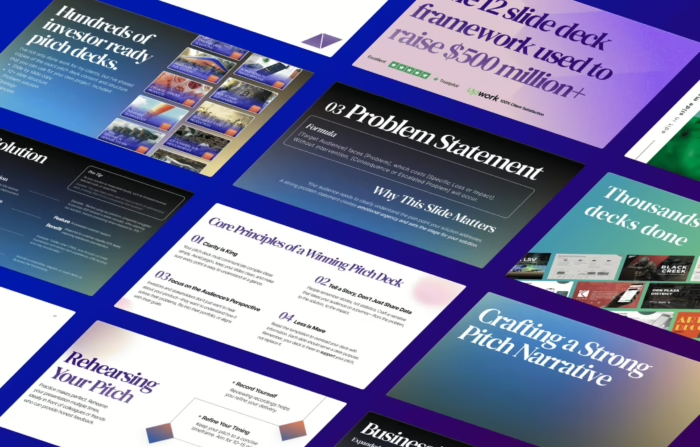
Whether you’re looking to pitch investors, get buy-in from your team, or just make sense of it yourself, I’ve got you covered. Let’s see how AI could become the shrink we all need but never thought we’d want.
Get an investor ready pitch deck that gets you funded and saves over 30 hours of your time.
Join 100s of successful entrepreneurs who’ve transformed their pitch decks by using my hands-off approach, which includes: market research, copy, design, financials, narrative and strategy.
1 week turnaround time and less. Special pricing for early stage companies.
The least you will get on this call is 10 actionable tips & strategies to own that next pitch, worth $599, for free.
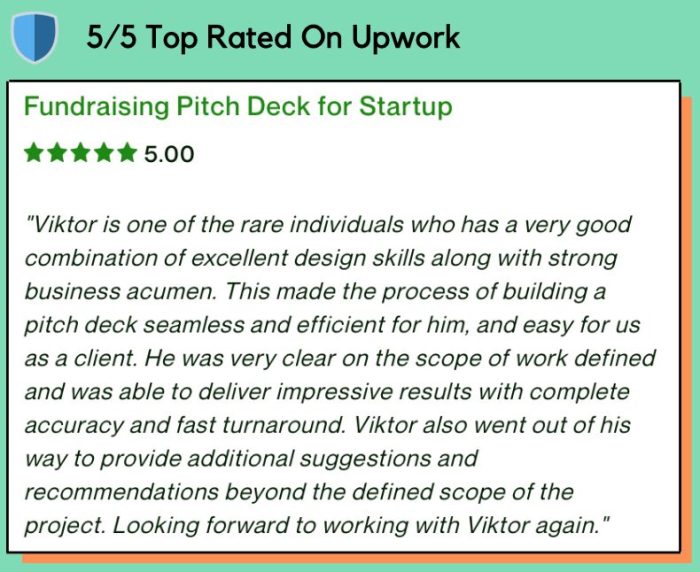
13 Slide AI Mental Health Pitch Deck Template
The above is is just a simplified pitch deck version developed as part of our entrepreneurship program for graduate studies.
Founders that are serious about getting the funding they need, opt in for a deck has industry specific content, superb narrative and award winning design like these ones below:









I can help you build that deck with my hands-off process in 7 days or less.
Book a free 30 minute call below if you’re serious about getting an investor ready deck, and we’ll discuss your needs in detail. I’ll help you design the deck, write the content, develop the narrative and flesh out the strategy with financials.

We help 15,000+ founders every month create better pitch decks.
Alternatively, get the custom template for just $69,99.As soon as the payment is processed I’ll send over a quick questionnaire and deliver the deck in 24 hours and less.

Follow us on social for the newest templates:
1. Elevator Pitch Slide
- Headline: “Revolutionizing Mental Health: Personalized AI Support for a World in Need.”
- Content:
- Name the Enemy: “Traditional mental health services are overstretched, inaccessible, and expensive.”
- Create Urgency: “1 in 4 people globally suffer from mental health issues, with a growing demand for immediate and scalable solutions.”
- Agitate the Problem: “The average wait time to see a therapist is 21 days, and 56% of people needing help don’t receive it due to cost and access barriers.”
- Offer the Missing Piece: “MindMend AI offers instant, personalized mental health support 24/7, bridging the gap between need and access.”
- Spark Intrigue: “Introducing MindMend AI, your virtual mental health companion that never sleeps, always listens, and helps when you need it most.”
2. Investor Memo Slide
- Problem Statement:
- “Over 450 million people worldwide suffer from mental health conditions. Of these, 60% go untreated due to stigma, cost, and lack of access, causing a $1 trillion productivity loss globally every year.”
- Solution Overview:
- “MindMend AI is an AI-powered platform that provides real-time mental health support, personalized interventions, and seamless integration with traditional care systems. Available anytime, anywhere, for anyone.”
- Market Opportunity:
- “The global mental health market is projected to reach $240 billion by 2026, with digital mental health solutions growing at a CAGR of 27%.”
3. Problem Slide
- Content:
- Unmet Need:
- “56% of people with mental health conditions go untreated due to stigma, cost, and lack of access.”
- “In the U.S. alone, 19% of adults experience a mental illness, and 60% do not receive adequate care.”
- Impact:
- “Mental health issues lead to over $1 trillion in lost productivity globally each year.”
- “Anxiety disorders, the most common mental illness in the U.S., affect 40 million adults but only 36.9% receive treatment.”
- Pain Points:
- “Traditional therapy is costly (average of $100-$200 per session), inaccessible (average wait time of 21 days), and not scalable (limited to therapist availability).”
- Unmet Need:
- Visuals:
- Infographics showing untreated cases, economic losses, barriers to access, and the high costs of traditional mental health care.
4. Solution Slide
- Content:
- What is MindMend AI?
- “MindMend AI is an AI-driven platform that offers 24/7 mental health support through chat, voice, and video.”
- Key Features:
- Instant Access: “Available on-demand with no wait times.”
- Personalized Care: “Uses advanced machine learning to tailor interventions based on user behavior, mood, and history.”
- Affordable and Scalable: “Reduces costs by up to 70% compared to traditional therapy.”
- Seamless Integration: “Works alongside existing care systems and can connect users to human therapists if needed.”
- How It Works:
- “Users access the platform via a mobile app or website, engage with AI-driven support, and receive personalized mental health insights, exercises, and referrals.”
- What is MindMend AI?
- Visuals:
- Product mockups, app screenshots showing user interface, a diagram of user journey from initial contact to ongoing support.
Hold on. You might want to check my list on the best presentation and communication books...
These are crucial books that will help you improve the design and structure of your decks and presentations, besides improving your delivery and skyrocketing your confidence when facing investors. Check them out below.
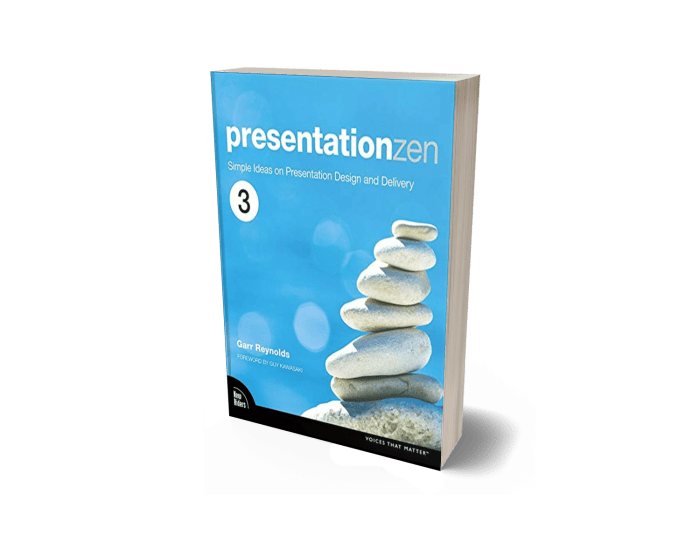
5. Market Opportunity Slide
- Content:
- Total Addressable Market (TAM): “$240 billion globally by 2026 in the mental health sector.”
- Serviceable Available Market (SAM): “$60 billion in digital mental health solutions.”
- Serviceable Obtainable Market (SOM): “$10 billion initially, focusing on North America and Europe.”
- Growth Drivers:
- “Increasing awareness and destigmatization of mental health issues.”
- “Growing demand for remote and accessible care solutions.”
- “Adoption of digital health technologies accelerated by the COVID-19 pandemic.”
- Visuals:
- Graphs showing market growth projections, TAM/SAM/SOM pyramid, and a map highlighting target regions.
6. Business Model Slide
- Content:
- Revenue Streams:
- Subscription Plans: “Monthly ($29.99) and yearly plans ($299/year).”
- Enterprise Solutions: “Custom packages for healthcare providers, insurance companies, and corporations.”
- In-App Purchases: “Additional services such as mindfulness programs, advanced data analytics, and customized self-care plans.”
- Unit Economics:
- Customer Acquisition Cost (CAC): “$15 per user through digital marketing and partnerships.”
- Customer Lifetime Value (LTV): “$300, based on a 10-month average customer retention.”
- Gross Margin: “60% per subscription after operational costs.”
- Revenue Streams:
- Visuals:
- Business model canvas or flowchart demonstrating how revenue streams interact and contribute to growth.
7. Go-To-Market Strategy Slide
- Content:
- Phase 1 – Initial Launch:
- “Soft launch in major U.S. cities with targeted digital marketing and influencer partnerships.”
- Phase 2 – Expansion:
- “Expand to Europe and Asia, leveraging telehealth partnerships, collaborations with insurers, and strategic healthcare alliances.”
- Marketing Channels:
- “Social media advertising, SEO, content marketing, influencer partnerships, and affiliate programs.”
- Sales Strategy:
- “Direct-to-consumer (DTC) marketing for individual users and B2B sales for corporate wellness programs and healthcare providers.”
- Phase 1 – Initial Launch:
- Visuals:
- Roadmap timeline showing different phases, icons representing marketing channels, and growth strategies.
8. Traction Slide
- Content:
- Milestones Achieved:
- “200,000 users within the first six months.”
- “Partnerships with three major healthcare providers and two leading insurance companies.”
- “95% user satisfaction rate based on feedback from initial users.”
- Key Metrics:
- “Monthly recurring revenue (MRR) growth of 35%.”
- “User retention rate of 80% over six months.”
- “20% conversion rate from free trial to paid subscription.”
- Milestones Achieved:
- Visuals:
- Metrics dashboard, growth graphs, and logos of key partners.
9. Competitive Analysis Slide
- Content:
- Direct Competitors: “Woebot, Wysa, BetterHelp.”
- Competitive Advantages:
- “MindMend AI offers advanced personalization algorithms, a broader platform integration, and a lower cost per session.”
- Positioning Matrix:
- “MindMend AI is positioned as more accessible, personalized, and cost-effective compared to current competitors.”
- Visuals:
- Competitive matrix or positioning map highlighting your unique selling points against competitors.
10. Team Slide
- Content:
- Core Team:
- Jane Doe, CEO: “15 years in digital health, ex-Head of Product at a leading telehealth startup.”
- John Smith, CTO: “10 years in AI and ML development, former CTO of an AI-driven analytics company.”
- Sarah Lee, Head of Clinical Innovation: “PhD in Clinical Psychology, formerly Director at a major mental health institute.”
- Advisors:
- “Dr. Mark Thompson, AI ethics expert, and Dr. Anna Garcia, digital health innovation leader.”
- Core Team:
- Visuals:
- Professional headshots, brief bios, and logos of notable previous affiliations.
11. Financial Projections Slide
- Content:
- Year 1 Projections:
- Revenue: “$2 million.”
- Expenses: “$1.5 million (including marketing, R&D, operations).”
- Net Loss: “$500,000 (due to initial investment in product development and marketing).”
- Year 2 Projections:
- Revenue: “$10 million.”
- Expenses: “$6 million.”
- Net Profit: “$4 million.”
- Year 3 Projections:
- Revenue: “$25 million.”
- Expenses: “$15 million.”
- Net Profit: “$10 million.”
- Year 1 Projections:
- Key Metrics:
- “Breakeven Point: Mid-Year 2.”
- “Gross Margin: 60%.”
- “Customer Base: Expected to grow to 1 million users by Year 3.”
- Visuals:
- Line graph of financial growth over three years, table detailing revenues, expenses, and net profits.
12. Ask Slide
- Content:
- Funding Amount: “$3 million in Series A funding.”
- Use of Funds:
- “50% for product development and AI enhancements.”
- “30% for marketing and user acquisition.”
- “20% for expanding strategic partnerships and international growth.”
- Milestones:
- “Achieve 500,000 users within the next 18 months.”
- “Expand to two new international markets within 12 months.”
- Visuals:
- Pie chart showing fund allocation, timeline with key milestones and expected growth.
13. Closing Slide
- Content:
- Compelling Closing Statement: “Join us in revolutionizing mental health care for millions around the world.”
- Contact Information:
- “Email: founder@mindmendai.com“
- “LinkedIn: linkedin.com/company/mindmendai”
- “Twitter: @MindMendAI”
- Visuals:
- Company logo, contact details, and social media icons.
Conclusion:
So, there you have it – AI for mental health. It might sound a little too much like “Black Mirror” to some, but the reality is that tech is already in our lives, from how we date to how we shop. Why not let it help us think and feel a little better, too? Sure, AI won’t replace a warm cup of tea and a chat with a friend, but it could be the perfect backup plan for those 3 a.m. anxiety spirals when everyone else is asleep.
Bottom line: AI isn’t here to take over your brain – just help you manage it better. So, whether you’re pitching this idea to investors, healthcare providers, or just your skeptical grandma, remember: it’s not about replacing human care; it’s about expanding what’s possible. You’ve got the idea, the pitch, and now the tools to make this a reality. Go ahead, bring AI into the conversation – who knows, it might just be the best decision your mental health ever made.
But if you don’t got it:
Join hundreds of successful entrepreneurs who’ve transformed their pitch decks with my help.
Let me develop an investor ready deck by using my hands-off approach, which includes: market research, copy, design, financials, narrative and strategy.
One week turnaround time.
The least you will get is 10 actionable tips & strategies to own that next presentation, worth $599, for free.

If you want to really dive into the world of pitch decks, check out our complete collection of pitch deck templates.
Related Ai Pitch Deck Resources
Check out our massive directory of pitch deck templates, or the following related templates:
13 Slide AI-Powered Travel Deck Template | Google Slides
You’ve planned the ultimate vacation in your mind—beaches, mountain views, perfect sunsets. But planning the…
12 Slide AI Manufacturing Solutions Pitch Deck Template | Google Slides
Let’s be real: factories aren’t exactly the settings of futuristic sci-fi novels—yet. Machines break down,…
11 Slide AI Vision in Manufacturing Pitch Deck | Google Slides
Picture this: You’re running a manufacturing plant that could give Tony Stark’s lab a run…
15 Slide AI Support Workforce Pitch Deck | Google Slides
Alright, imagine this: You’re running an insurance company, juggling countless customer queries, tedious claims processing,…
12 Slide Multilingual AI Transcriptions Pitch Deck Template | Google Slides
Alright, picture this: You’re bridging the language gap for global companies, helping teams connect without…
11 Slide AI-Powered Job Interviews Pitch Deck Template | Google Slides
So, you’re here because you’re tired of sitting through endless interview cycles, crossing your fingers…
12 Slide AI-Powered Sales Messaging Pitch Deck Template | Google Slides
Hey there. Let’s be honest: reaching out to potential customers today feels a bit like…
12 Slide AI Wildfire Detection Pitch Deck Template | Google Slides
Alright, picture this: You’ve built a brilliant AI-powered wildfire detection system that could literally save…
12 Slide GenAI Code Testing Pitch Deck Template | Google Slides
Alright, so here’s the scene: You’ve built this genius AI code-testing tool that could save…
12 Slide AI-Powered Gaming Solutions Pitch Deck Template | Google Slides
So, you’ve built a game – maybe it’s the next “Fortnite” or “GTA,” but the…
10 Slide Generative AI Fact-Checking Pitch Deck Template | Google Slides
Imagine this: You’re a news editor, running on caffeine, trying to keep up with the…
12 Slide bAiology Pitch Deck Template | Google Slides
You’re sitting on a breakthrough for biology—an AI-driven tool that could finally unravel the complexity…
12 Slide AI-Powered Buyer Intelligence Pitch Deck Template
So, you’re tired of hearing your sales team complain about the lack of quality buyer…
11 Slide Semiconductor Innovation Pitch Deck Template | Google Slides
You’re working on a semiconductor that could finally stop your laptop from feeling like a…
15 Slide AI Agents for Enterprises Pitch Deck Template
You’re sitting on an idea that could bring enterprise operations into the AI-driven future—but your…
AI Voice Solutions Pitch Deck Template
So, your customer service teams are buried in complaints, requests, and endless repetitive tasks, and…
10 Slide AI-Powered Parenting Assistant Pitch Deck Template
Parenting is already a rollercoaster of emotions, sleepless nights, and constant wondering if you’re doing…
11 Slide AI-Based Data Center Control System Pitch Deck Template
Imagine this: You’re managing a data center, servers humming, but every time something goes wrong,…
AI Agents to SMBs Pitch Deck Template
You’re running an SMB, juggling a million tasks, and every day feels like a sprint….
10 Slide Visually Impaired Mobility Robots Pitch Deck Template
Ever tried navigating a crowded street with your eyes closed? Not fun, right? Now, imagine…
Check out some of the essential 101 guides:
Mastering the Financial Projections Slide: Turning First Impressions into Lasting Opportunities
You’re convinced your startup is the next big thing, but somehow, your pitch keeps landing…
Creating an Impactful Traction Slide for Your Investor Pitch Deck: A Startup Guide
You’ve got the next unicorn startup brewing, but here’s the harsh reality: your traction slide…
Mastering the Pitch Deck Solution Slide
You’ve got the next big thing, whether it’s a revolutionary SaaS platform or the future…
Mastering Your Pitch Deck Go-to-Market Slide: A Step-by-Step Guide For Startups
Ever pitched your groundbreaking idea, only to be met with blank stares and polite nods?…
Pitch Deck Problem Slide: Template, Examples, Guide
You’ve got a groundbreaking business idea, but somehow, the investors aren’t biting. Here’s the kicker:…
The Elevator Pitch Slide | Examples, Template, Tips & Guide
Imagine having a revolutionary idea that could disrupt an entire industry. You’ve done the hard…




